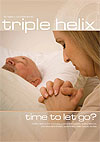The subject of praying with patients received much media scrutiny after nurse Caroline Petrie was suspended in 2009 for offering to pray with a patient. (1) Spiritual health is an important aspect of holistic care. The British Medical Association 2009 conference recognised this, but failed to carry a motion reassuring doctors that they would not be penalised for offering to pray with patients. (2)
During my vascular surgery rotation, I met a patient who challenged me and made me reflect on praying for patients in difficult circumstances. The patient had been admitted for highrisk surgery and necessitated a post-operative HDU stay. I had come to know her well during the preceding week and on the eve of her surgery she talked about being fearful of her own mortality. I asked her about her spiritual beliefs and whether she was a prayerful person. Following some discerning questions and with her permission, I prayed with her, after which she felt more peaceful. The following day on the HDU ward round she explained to the assembled medical and nursing team that I had prayed with her, she had found it very helpful, and would like me to pray with her again. She looked at me expectantly, intending that I would pray with her immediately, before the ward round moved on. I struggled to know how to react. On one hand, I was aware that I was the most junior doctor present, there was a busy ward round to be done, and some of my colleagues were clearly very uncomfortable. I too felt uncomfortable not knowing how my colleagues would react to knowing I had prayed with her previously, even though many of them knew I was a Christian.
General Medical Council. Personal Beliefs and Medical Practice. March 2008
Patients' personal beliefs may be fundamental to their sense of well-being and could help them to cope with pain or other negative aspects of illness or treatment (Para 5)
For some patients, acknowledging their beliefs or religious practices may be an important aspect of a holistic approach to their care (Para 9)
Nothing in the GMC's guidance Personal Beliefs and Medical Practice (2008) precludes doctors from praying with their patients. It says that the focus must be on a patient's needs and wishes.
Any offer to pray should follow on from a discussion which establishes that the patient might be receptive. It must be tactful, so that the patient can decline without embarrassment – because, while some may welcome the suggestion, others may regard it as inappropriate.
Jane O'Brien, Assistant Director, Standards and Fitness to Practise, GMC. Telegraph Letters. 7 February 2009
I have to admit I felt awkward at the thought of praying openly in such a situation and before so many people. Many of the reasons why we choose not to pray with patients were highlighted: lack of privacy, questioning its appropriateness, fear of colleagues' reactions and whether we may be reported, and also perhaps fear of rejection on the patient's part. However, I also realised that despite the difficult and busy environment of intensive care or high dependency, with the close observation and high numbers of staff, these patients are some of the sickest, facing the biggest physical health challenges, and are arguably therefore the most in need of spiritual care.
What did I do?
I acknowledged we had prayed together the previous day, even though it would have been easy to have said nothing. I didn't pray there and then, but explained, in front of my colleagues, that I would return and pray later, but if she would like someone sooner then I would contact the chaplain.
How did my colleagues react? When I returned the HDU nurses were supportive and respectful, and managed to afford us as much privacy as they could. It brought spontaneous discussion among my fellow juniors, who thought it positive that someone had been able to give a patient the holistic care she needed. Others argued that since we were so busy, it would be better to call in a chaplain. The impression given was that they felt it was time wasted for which everyone else had to pick up the slack, that spiritual care was an extra nicety but certainly not a necessity. More senior colleagues chose not to acknowledge it with me either at the time or afterwards.
One of the most rewarding moments of my career to date was in Madagascar, where I was able to hold the hand of a child and pray with him as he died. In the Bible the elders are instructed to pray with the sick 3 and Jesus spent significant periods of time ministering to the sick. (4) (5) We should not be put off but we need to show wisdom and discernment in the way we approach spiritual care. Questions such as 'Do you have a faith that helps you through difficult times?' and 'Are you a prayerful person?' can be very helpful. Listen to God and to his prompting. Always ask permission and be humble if a request is refused. Praying with patients enables God to minister through us to show his children his love and peace and, at the same time, serves as a reminder of just how much God loves his people, our patients.
Victoria Parsonson was an FY1 at the time of this account. She is now an FY2 in the West Midlands































